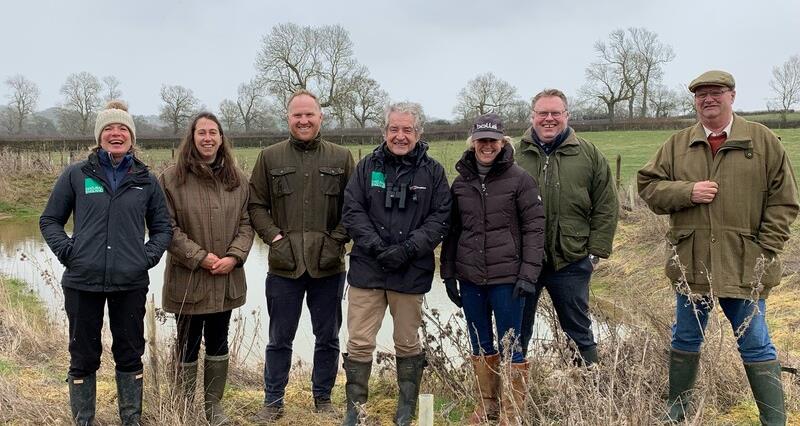Oli and Rebecca run a lowland grassland family business in the Welland valley. Both are passionate that productive and profitable farming can complement effective environmental management of the farmed landscape and are putting this into practice.
The farm has a near total reliance on grassland and cover crops for feeding 550 Lleyn breeding ewes, 225 Lleyn ewe lambs and a small Beef Shorthorn suckler herd.
Diversification
The business is developing diversification enterprises in the form of a small on-farm butchery and a seasonal pop-up campsite in a meadow. The butchery allows home-produced, pasture-fed beef and lamb to be dry-aged and retail packed for direct supply to consumers.
Natural England saw first-hand how the Lees are putting their policy into practice. The farm participates in the ELMs SFI pilot, with standards chosen to complement the farming system whilst also enhancing the ecological and environmental value of the land.
Pond habitats
Other environmental work being managed includes creating new pond habitats for Great Crested Newts Scheme standards have been chosen to complement the farming system whilst also enhancing the ecological and environmental value of the land.
Woodland planting with support from the Woodland Trust was also completed in 2022 to enhance the ecological value of the farm and provide livestock shelterbelts. The visitors also saw the potential of enhanced hedgerows and what they could hold for carbon sequestration.
Hedges
“Think of all the carbon that you can capture by letting your hedge grow by another foot”, highlighted Oli Lee, as the visitors walked back from one of the newly created ponds.
There was keen discussion between the NFU and Natural England as the meeting discussed food security, nature recovery, how ELMs SFI was developing, carbon sequestration and approaches toward good outcomes through successful and sustainable farm businesses.
There was good consensus on allowing farmers to manage the land for the outcomes needed in nature recovery.
